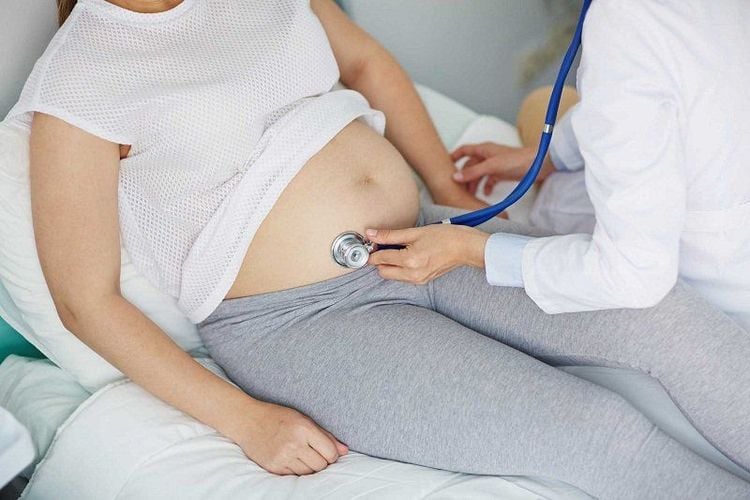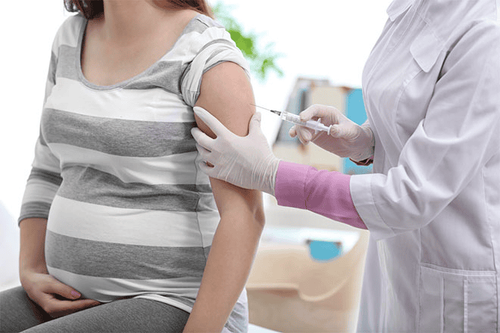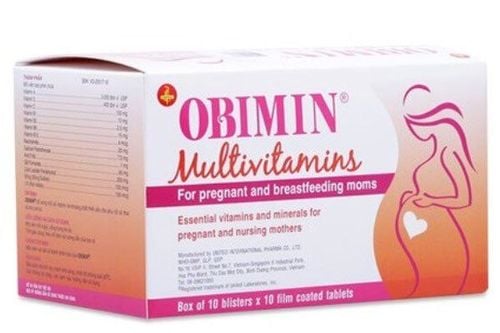Rubella is a common virus that poses risks to pregnant women. This contagious infectious disease can be prevented through vaccination. Testing for rubella is essential for pregnant women to ensure the health of both the mother and the child.
1. What is Rubella?
Rubella, also known as German measles, is characterized by a rash and mild fever. Although this disease is usually not severe, it can cause congenital defects in the fetus. Rubella can be transmitted from mother to child through the bloodstream, making it especially dangerous for the fetus.
If a pregnant woman contracts the rubella virus during the first trimester of her pregnancy, there is a risk of up to 90% transmission of the virus to the fetus. This virus can lead to severe consequences, such as fetal death or congenital rubella syndrome. Therefore, diagnosing rubella in pregnant women—especially in the early stages of pregnancy—is crucial.
2. What are Rubella IgG and Rubella IgM?
Rubella diagnosis typically involves quantitative immunoassays for Rubella IgM and IgG. These tests detect antibodies produced by the body’s immune system in response to the rubella virus. IgM and IgG are two kinds of Rubella antibodies.
Rubella IgM appears in the blood after exposure to the rubella virus. Their levels rise quickly, peak, and last for 7-10 days, then gradually decrease over several weeks.
Rubella IgG appears later than IgM but remains in the blood throughout life. They help the mother’s body against the infection from the rubella virus. IgM antibodies indicate the infection in recent, while IgG antibodies indicate either a past infection or vaccination.
Congenital rubella syndrome can lead to various issues in children, including developmental delays and deafness... Therefore, it is important for pregnant women to regularly test for rubella antibodies to ensure a sufficient immune response.

3. Rubella Testing (IgG and IgM) for pregnant women
The rubella test (IgM and IgG) is recommended for pregnant women who have never been vaccinated against rubella and have never had rubella prior to their pregnancy. The optimal time to perform this test is between the 7th and 10th week of pregnancy. It is advised not to conduct this test after the 16th week of pregnancy, as interpreting the results becomes challenging and addressing any issues is more difficult when the fetus is larger.
If the IgM result is negative and the IgG result is positive, it indicates that the woman was infected with rubella at least 10 weeks prior to the test and has protective IgG antibodies. If the IgG concentration increases when retested two weeks later, it suggests past infection or vaccination against rubella. Conversely, if the IgG level is low, further testing for both IgM and IgG after one week is necessary. A positive IgM result alongside an increase in IgG indicates acute rubella infection.
If the IgM test result is positive and IgG is negative, this suggests a recent rubella virus infection, as only IgM antibodies have responded. It is recommended to perform IgM and IgG tests again after two weeks. If IgM remains positive and IgG starts to appear, this confirms the woman is infected with rubella. However, if IgM is positive and IgG is negative, the IgM result may not be specific. For pregnant women under 12 weeks with a positive IgM index, there is an 80% risk of the fetus being infected, leading to a high risk of congenital rubella syndrome in the infant.
In cases where IgM is positive and IgG is positive, false positive results may occur, indicating a recent viral infection. Pregnant women need to be monitored and tested multiple times. If results remain consistent over two to three tests, the pregnant woman can be reassured.
If both IgM and IgG are negative, it may indicate that the pregnant woman has never been infected with rubella and is at risk of contracting it. Regular monitoring is essential during this time to promptly address any possible infection. This result could also indicate that the woman has been infected but is in the incubation period, with IgM and IgG antibodies yet to be produced. In such cases, testing again in 2-3 weeks is recommended.

The risk of transmitting rubella from mother to child during the first trimester of pregnancy is 80%. This risk for congenital rubella syndrome decreases to 33% between the 11th and 12th week of pregnancy, to 11-24% between the 13th and 16th weeks, and reduces to 0% after the 16th week. Therefore, determining the timing of rubella infection in pregnant women is critical for assessing fetal health.
To effectively prevent rubella, women of reproductive age are encouraged to be vaccinated against rubella before planning for pregnancy. Vaccination prior to conception is the best strategy for protecting both maternal and fetal health. Women who plan to become pregnant should visit vaccination centers and medical facilities with a reliable supply of vaccines.
Vinmec International General Hospital provides a variety of vaccination services tailored to meet the needs of different populations, including:
- Thorough examination by specialists to screen for physical and health issues, consultation on vaccine options, vaccination regimens, and post-vaccination monitoring and care based on the latest recommendations from the Ministry of Health and the World Health Organization, ensuring maximum effectiveness and safety for our clients.
- A skilled team of doctors and nurses who are experienced and attentive to the needs of patients, applying effective pain relief methods during the vaccination process.
- Post-vaccination, all vaccinated clients are monitored for 30 minutes, and their health is re-evaluated prior to leaving.
- Vinmec healthcare system provides comprehensive medical monitoring before, during, and after vaccination, with an emergency team ready to respond to any incidents such as anaphylactic shock or respiratory failure, ensuring timely intervention when necessary.
- All vaccines are imported and stored in a modern cold storage system, adhering to GSP standards, to maintain optimal conditions for vaccine effectiveness.
- The customers will receive a schedule message before the vaccination date and the vaccination information will be synchronized with the national vaccination system.

To arrange an appointment, please call … or make your reservation directly HERE. You may also download the MyVinmec app to schedule appointments faster and manage your reservations more conveniently.














